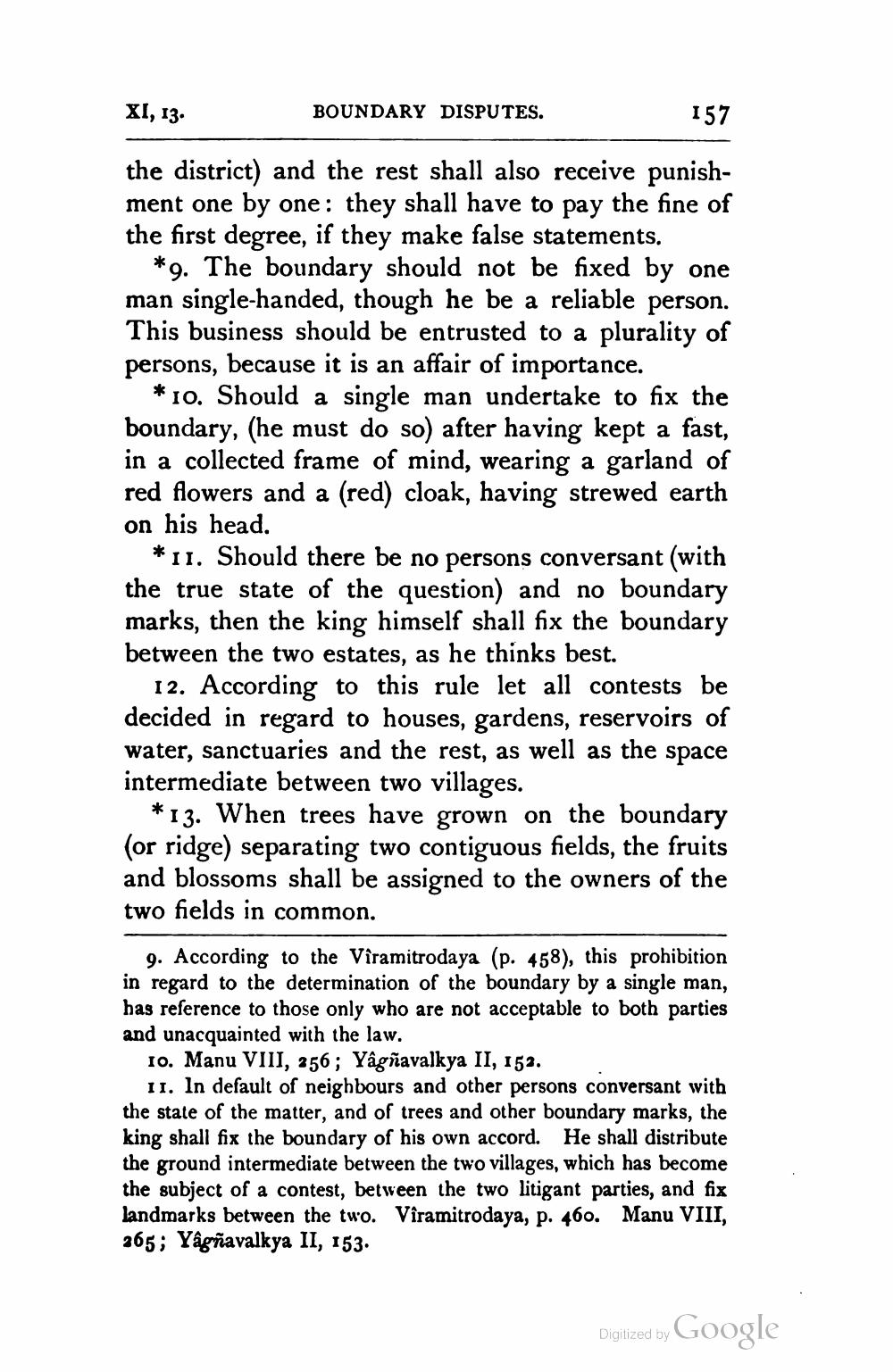________________
XI, 13.
BOUNDARY DISPUTES.
157
the district) and the rest shall also receive punishment one by one: they shall have to pay the fine of the first degree, if they make false statements.
*9. The boundary should not be fixed by one man single-handed, though he be a reliable person. This business should be entrusted to a plurality of persons, because it is an affair of importance.
*10. Should a single man undertake to fix the boundary, (he must do so) after having kept a fast, in a collected frame of mind, wearing a garland of red flowers and a (red) cloak, having strewed earth on his head.
*11. Should there be no persons conversant (with the true state of the question) and no boundary marks, then the king himself shall fix the boundary between the two estates, as he thinks best.
12. According to this rule let all contests be decided in regard to houses, gardens, reservoirs of water, sanctuaries and the rest, as well as the space intermediate between two villages.
*13. When trees have grown on the boundary (or ridge) separating two contiguous fields, the fruits and blossoms shall be assigned to the owners of the two fields in common.
9. According to the Vîramitrodaya (p. 458), this prohibition in regard to the determination of the boundary by a single man, has reference to those only who are not acceptable to both parties and unacquainted with the law.
10. Manu VIII, 256; Yâgñavalkya II, 152.
11. In default of neighbours and other persons conversant with the state of the matter, and of trees and other boundary marks, the king shall fix the boundary of his own accord. He shall distribute the ground intermediate between the two villages, which has become the subject of a contest, between the two litigant parties, and fix landmarks between the two. Viramitrodaya, p. 460. Manu VIII, 265; Yagñavalkya II, 153.
-
Digitized by Google




